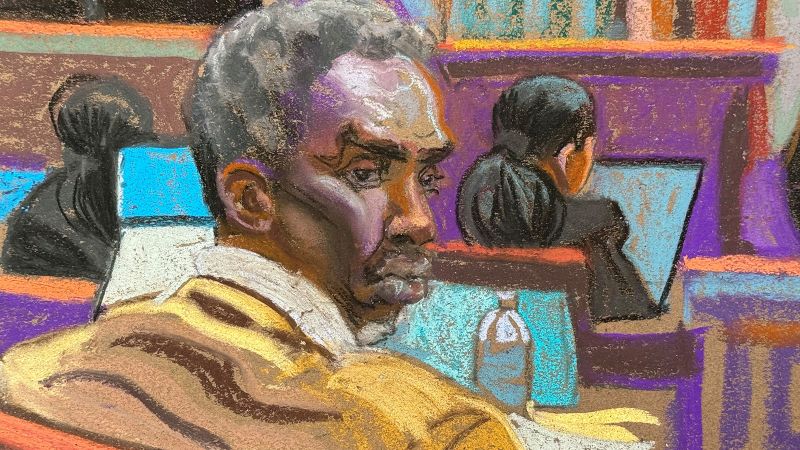Sean “Diddy” Combs, the renowned music mogul, is currently embroiled in a significant legal battle following his recent conviction on two counts related to transportation to engage in prostitution. In an intriguing twist, Combs has formally requested the presiding judge to either acquit him or grant him a new trial, despite the forthcoming sentencing. This legal maneuver emerges after a trial that has captured considerable media attention, raising deep questions about the justice system, the interpretation of the Mann Act, and issues relating to personal liberty.
The appeal for acquittal comes through a comprehensive 62-page memorandum, filed on a Wednesday night, in which Combs’ defense claims he has been unjustly targeted by federal authorities. His lawyers assert that the conviction is not only “unconstitutional” but also unprecedented. The prosecutor’s case portrayed Combs as heading a criminal enterprise involving violent manipulation of his employees. Specifically, he was accused of coercing former girlfriend Casandra “Cassie” Ventura, as well as another woman described in court proceedings simply as “Jane,” to participate in drug-fueled sexual activities. These encounters were characterized in court as both exploitative and non-consensual. Meanwhile, Combs’ legal team refuted these allegations claiming that the activities were consensual and aligned with a lifestyle of personal freedoms, rather than crimes.
Combs’ conviction marks a significant moment under the Mann Act, as his defense has argued that he is the first individual to be convicted under this law under such circumstances. His attorneys maintain that had he only been charged with the transportation counts, a different trial dynamic would have emerged, one wherein less evidence of alleged violence could have been presented. This claim puts into perspective the broader implications of his legal struggles, as Combs essentially argues that the legal grounds for his conviction lack precedence.
Attorney Alexandra Shapiro, representing Combs, articulated the gravity of the conviction as a standalone event that should not be upheld. Her memorandum critiques the prosecution’s portrayal of Combs as a villain, suggesting that the two-month trial ultimately demonstrated a lack of credible evidence supporting such claims. Significantly, the jury acquitted Combs on more severe charges of racketeering conspiracy and sex trafficking, a development that highlights the contentious nature of the trial’s outcomes.
The nature of the evidence, particularly regarding the sexual encounters described, is central to the deliberations of the case. Despite testimonies from both women alleging they felt coerced due to the power dynamics in their relationships with Combs, the jury refrained from convicting him on the sex trafficking charges. This outcome invites scrutiny and debate around issues of consent, coercion, and the interpretation of legal statutes governing prostitution and trafficking.
Furthermore, Combs’ defense introduces the argument that the videos of the sexual encounters, which were part of the evidence presented in court, do not constitute coercion or prostitution. They categorize it instead as amateur content protected by the First Amendment. The defense argues that Combs recorded these interactions with the explicit consent of the parties involved and asserts that there was no profit-driven intention behind the actions he took.
To complicate matters, as Combs endeavors to secure a new trial or an acquittal, he faces additional legal battles concerning his bail status. His latest motion seeks to release him on a considerable $50 million bond, asserting he is neither a flight risk nor a threat to the community. This comes after multiple requests for bail were denied, largely due to concerns regarding his past behavior and the potential risk he poses to witnesses. Letters from individuals, including Ventura, expressing fear for their safety if Combs were to be released, underline the surrounding community’s concerns and the serious implications of his alleged actions.
As the case evolves, Sean Combs is currently set to be sentenced on October 3 and has remained incarcerated at Brooklyn’s Metropolitan Detention Center since his arrest in September 2024. The implications of this case extend beyond personal ramifications for Combs to broader discussions about justice, celebrity influence, and societal attitudes toward issues of consent and accountability in intimate relationships. The intersection of fame and the law in this high-profile case continues to unfold, promising further developments in the coming weeks.











